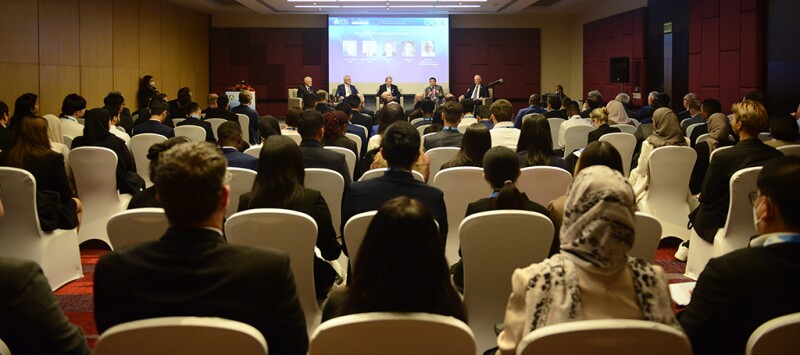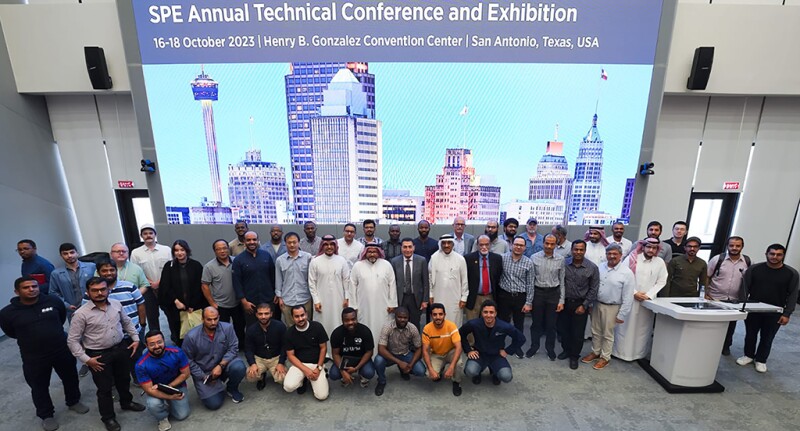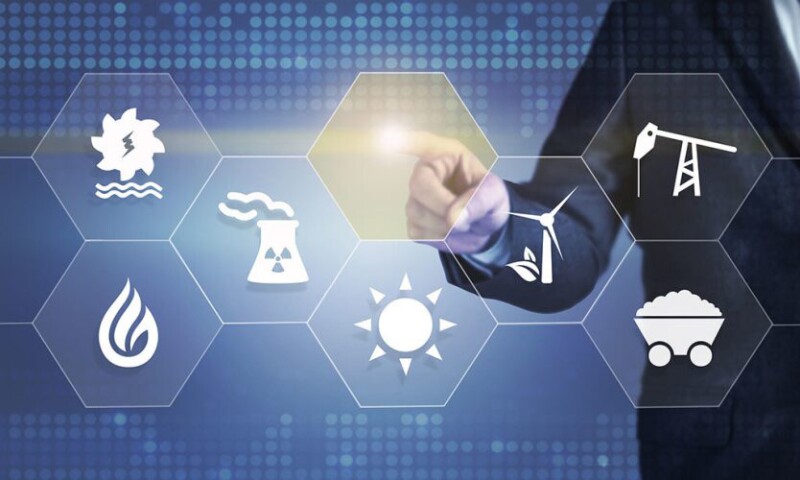As many of you know, SPE recently approved its 2023 Strategic Plan. The theme I chose for my presidency is Petroleum ++. As I explained in previous columns, petroleum refers to our continued work in producing oil and natural gas. The first + refers to our role in mitigating climate change concerns, and the second + is about our role in the energy transition and new forms of energy.
The industry is already at different stages in this transition, and SPE is working to provide guidance and education to our members through many avenues. I want to talk about how these industry changes are affecting our current and future members and how SPE is helping.
We are seeing many oil- and gas-producing and oilfield service companies adjusting to make their businesses sustainable through industry change. Shell’s strategy is “Powering Progress” which names climate change as an urgent challenge and vows it will contribute to a net-zero world. Saudi Aramco is creating value through sustainable business operations saying sustainability factors have become increasingly critical as it aims to balance profitability, environmental protection, and the growth and prosperity of the communities in which it operates. Baker Hughes is “taking energy forward” to make it safer, cleaner, and more efficient for people and the planet, and the newly rebranded SLB is driving energy innovation for a balanced planet. These are just a few of the higher-profile companies making changes in their organizations.
Another important change is academia’s response to the energy transition. Globally, universities are expanding curricula for petroleum engineering students. Many are adding research and courses in carbon capture, utilization, and sequestration (CCUS), hydrogen, geothermal, and mineral processing of coal. Some universities are more closely integrating petroleum engineering, geology, and geophysics courses for beginning students.
Penn State, for example, is offering new courses on carbon sequestration, doing new research on hydrogen, and recently opened a new center in mineral processing of coal residuals. The King Fahd University of Petroleum and Minerals (KFUPM) has strongly integrated its petroleum engineering bachelor of science program with the geosciences department (geology and geophysics). A new concentration in energy sustainability will be introduced in the fall of 2023, which will address energy transition and decarbonization, CCUS, and geothermal and hydrogen production and storage.
The University of Texas at Austin (UT) and the Bureau of Economic Geology recently launched a geothermal research consortium called HotRock that will integrate isolated bodies of science and engineering knowledge to broaden and accelerate the scale up of “geothermal power anywhere.” UT launched a new multidisciplinary research and education initiative, Energy Emissions Modeling and Data Lab, in partnership with Colorado School of Mines and Colorado State University to address the growing need for accurate, timely, and clear accounting of greenhouse gas emissions across global oil and natural gas supply chains.
These are just a few examples of how universities are helping to prepare future workers for a more integrated industry.
How is SPE providing members with needed information during the energy transition?
SPE is preparing to follow industry and academia’s lead in helping prepare its members for the energy transition through collaboration, content, events, training, and artificial intelligence (AI).

Collaboration
SPE is collaborating through its technical and geographic Sections which are evolving with the industry’s current and foreseeable trends. SPE grew its technical reach by expanding its 20 technical sections to add new communities of technical interest including:
- Carbon Dioxide Capture, Utilization, and Storage Section—engaged in collaboration, knowledge sharing, and spearheading activities dedicated to the advancement of CCUS and decarbonization of the petroleum industry.
- Geothermal Section—builds on the synergies between the geothermal industry and the knowledge from the oil and gas industry, especially for enhanced and advanced geothermal systems.
- Hydrogen Section—brings together technical professionals and academia who are active or have a deep interest in the use of hydrogen as an energy carrier. It aims to share knowledge, experiences, leading practice, promote industry awareness, and enhance technical competencies.
- Methane Emissions Management Section—brings together technical professionals and academia who are active or have a deep interest in the use of hydrogen as an energy carrier.
Content SPE is creating and curating content that helps guide members through the energy transition. Through articles in the Journal of Petroleum Technology (JPT) like Energy Transition and Labor Transition, comparing workers’ salaries in oil and gas vs. clean energy, articles focusing on new technology to address energy transition challenges such as Microwave Drilling Sounds Like Science Fiction but So Does Drilling Down to the Hottest Rock and Why Starting or Continuing a Career in Upstream Oil and Gas Is Still a Good Idea.
Another rich source of information about the energy transition is SPE Live content. For example, Geothermal and Petroleum Engineering: Where Subsurface Engineering Meet webinar delves into the background of the industries, transfer of skills between the two, and how collaboration can reshape the future of both industries. Regional and global content is also available such as this virtual panel from the SPE Gulf Coast Section Data Analytics in the Energy Transition: Challenges and Opportunities to the Qatar Section’s Transition to Sustainability for Net-Zero Emissions by 2050
The Distinguished Lecturer program also disseminates content about energy transition with discussions on
- Methane Emissions: Our Obligation and Our Opportunity in the Energy Transition.
- Entrepreneurship in the Transitioning Oilfield: Starting and Building a Great Company during Tumultuous Times.
- Repurposing Oil and Gas Wells to Geothermal Wells.
Events
Topics about the energy transition are appearing in SPE events around the globe. In January, SPE held a symposium called “Leveraging Artificial Intelligence to Shape the Future of the Energy Industry” in Al Khobar, Saudi Arabia. This symposium brought together professionals from academia, industry, and government to exchange their digital technology ideas and breakthroughs to deliver tomorrow’s energy more sustainably, efficiently, and safely.
Two upcoming events include the SPE Energy Transition Symposium, 22–23 August, in Houston, which will deliver a prominent and dedicated energy transition event by collecting and disseminating the knowledge from industry leaders, technical experts, academicians, and ESG leaders to advance the conversations, technology, and exchanges that will move our industry forward. Another is the SPE Workshop: The Guyana/Suriname Basin: Strategic Development of Resources During the Energy Transition, 3–4 October, in Georgetown, Guyana, providing a venue to share ideas across companies, professionals, and delegates to support the emerging offshore oil and gas industry in the Guyana/Suriname Basin.

Training
SPE offers a variety of training courses to help new and senior engineers in their careers. Some of the new courses offered give members solid information on managing the energy transition. Dr. Srikanta Mishra’s course, “Energy Transition for Oil & Gas Professionals,” helps oil and gas professionals position themselves for the energy transition by gaining an understanding of the relevant concepts/technologies and how they relate to their E&P expertise. Dr. Kamel Ben-Naceur’s course, “How Can the Oil and Gas Industry Adapt and Maintain its Leadership Throughout the Energy Transition?,” gives participants an overview about different initiatives relating to sustainability including leveraging CCUS to enable sustainable energy supply. In Dr. Denis Voskov’s course, “Reservoir Simulation for Energy Transition Application Using Open-Source DARTS Framework,” will teach participants how to perform a reservoir simulation of energy transition applications using the opensource Delft Advanced Research Terra Simulator.
Artificial Intelligence (AI)
ChatGPT, an artificial intelligence chatbot developed by OpenAI, has been widely covered in the mass media. You may wonder how other advances in AI might help SPE deliver on its mission. There are two points to be addressed in this regard.
First, the use of AI. SPE has been using AI behind the scenes to deliver on its mission since 2015. Many of SPE’s IT systems include AI to improve efficiency. One of the key member-facing initiatives is a collaboration with a partner to use Natural Language Processing (NLP) to read, characterize, and enrich the content from our websites, including OnePetro, JPT, TWA, PetroWiki, and Energy Stream. The information from this AI system is mostly used behind the scenes to help people find the content they are looking for more easily, but it is also accessible directly on SPE’s research portal (https://search.spe.org). This work and the research portal are described in SPE 191758.
The next step is to provide specific answers to questions rather than simply listing the relevant papers or articles. For the past year, we have been working on this and in mid-March we launched a trial with 200 SPE volunteers to test this capability.
Although OpenAI’s ChatGPT is fundamentally changing expectations about what is possible in this regard, the technology behind a generative pre-trained transformer (GPT) like ChatGPT precludes tracing the answer back to the original source, which is critical for an engineering society like SPE. SPE and our partner are taking a hybrid approach which provides an English answer to questions like the GPT models but maintains the reference to the original source of the answer so it can be validated.
Second, the widespread attention ChatGPT recently gained for its capability to assist in drafting scientific papers has the potential to enhance the efficiency and speed of academic and technical writing, and the SPE Board believes it is crucial to use it responsibly and with proper citation and attribution. To this end, SPE has implemented a new policy for authors who use AI language tools like ChatGPT to generate content for their papers. The policy stipulates that AI-generated content may be used within SPE publications, but under very specific conditions.
The most important condition is that AI language tools should never be listed as an author. These tools cannot sign publishing agreements, transfers of copyright, or be held responsible for the content they produce. Additionally, any AI-generated content used within a manuscript must be thoroughly vetted, fact-checked, and disclosed. The authors of the manuscript will be held responsible for any errors, inconsistencies, incorrect references, plagiarism, or misleading content included from AI tools. If AI language tools are used in a manuscript, SPE requires authors to clearly explain the use within the methodology or acknowledgement section of the paper. Failure to do so could result in the rejection of the work and a possible code of conduct review.
It's important to note that the technology for AI language tools like ChatGPT is advancing quickly. SPE plans to periodically review and update this policy to ensure it remains relevant and effective. Any changes to the policy will be communicated transparently and in a timely manner.
Around the World
In my recent travels, I had the honor of attending the International Petroleum Technical Conference (IPTC) in Bangkok, Thailand. IPTC (which alternates between the Asia-Pacific region and Saudi Arabia) saw increased turnout this year with 4,263 attendees from 56 countries. The conference focused on “Balancing the Energy Landscape through Innovation and Sustainability.”
SPE also held an important symposium about the importance of AI in the future of the energy industry. This is the second symposium on digital transformation in the oil and gas industry, held in Al-Khobar, Saudi Arabia. The symposium brought together more than 600 attendees from 22 countries to exchange digital technology ideas.
In a visit to KFUPM, I presented a talk about the future of our industry and SPE and visited with leadership of the university about their vision and efforts for sustainable education for their students.
Until next time!


